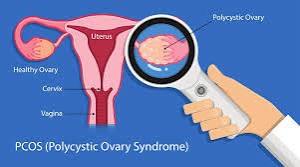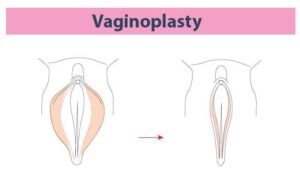Heavy menstrual bleeding, also known as menorrhagia, can significantly impact a woman’s quality of life, affecting her physical health, emotional well-being, and daily activities. Understanding the causes and available treatments is essential for managing this common gynecological concern effectively.
What is Heavy Menstrual Bleeding?
Heavy menstrual bleeding is characterized by excessive or prolonged menstrual bleeding that interferes with a woman’s normal activities. While menstrual flow varies from woman to woman, menorrhagia is diagnosed when menstrual bleeding is abnormally heavy or prolonged enough to disrupt daily life.
Causes of Heavy Menstrual Bleeding
Several factors can contribute to heavy menstrual bleeding:
- Hormonal Imbalance:
- Fluctuations in estrogen and progesterone levels can disrupt the normal menstrual cycle, leading to excessive endometrial growth and heavier periods.
- Uterine Fibroids:
- Non-cancerous growths in the uterus (fibroids) can cause heavy bleeding or prolonged periods by distorting the uterine cavity.
- Adenomyosis:
- A condition where the inner lining of the uterus (endometrium) breaks through the muscle wall of the uterus (myometrium), causing heavy menstrual bleeding and pain.
- Endometrial Polyps:
- Benign growths in the uterine lining (endometrium) that can cause heavy or irregular bleeding.
- Certain Medications:
- Blood thinners, anti-inflammatory medications, and hormonal medications may contribute to heavier menstrual bleeding.
- Pelvic Inflammatory Disease (PID):
- Infections of the reproductive organs can lead to inflammation and heavy menstrual bleeding.
- Miscarriage or Ectopic Pregnancy:
- Pregnancy-related complications can cause heavy bleeding if left untreated.
Symptoms of Heavy Menstrual Bleeding
Women with heavy menstrual bleeding may experience:
- Bleeding that requires frequent changing of pads or tampons (more than once every hour)
- Menstrual periods lasting longer than seven days
- Passing large blood clots during menstruation
- Anemia symptoms, such as fatigue or shortness of breath
Diagnosis and Evaluation
Diagnosing the cause of heavy menstrual bleeding typically involves:
- Medical History: Detailed discussion of menstrual patterns, symptoms, and overall health.
- Physical Examination: Including a pelvic exam to check for abnormalities.
- Blood Tests: To assess iron levels and rule out underlying conditions.
- Ultrasound: Imaging test to examine the uterus and ovaries for structural abnormalities.
- Endometrial Biopsy: Sampling of the uterine lining to check for abnormal cells or hormonal imbalances.
Treatment Options
The treatment for heavy menstrual bleeding depends on the underlying cause, severity of symptoms, and a woman’s preferences for future fertility:
- Medications:
- Nonsteroidal Anti-Inflammatory Drugs (NSAIDs): Reduce menstrual bleeding and relieve pain.
- Hormonal Therapies: Birth control pills, hormonal IUDs, or hormone therapy to regulate menstrual cycles and reduce bleeding.
- Minimally Invasive Procedures:
- Endometrial Ablation: Procedure to destroy the uterine lining, reducing menstrual flow.
- Uterine Artery Embolization (UAE): Minimally invasive procedure to block blood supply to fibroids, reducing their size and symptoms.
- Surgical Treatments:
- Myomectomy: Surgical removal of uterine fibroids while preserving the uterus.
- Hysterectomy: Surgical removal of the uterus, recommended in severe cases or when other treatments have failed.
- Lifestyle and Home Remedies:
- Iron Supplements: To prevent or treat anemia caused by heavy menstrual bleeding.
Healthy Diet: Rich in iron and nutrients to support overall health and well-being
Consult Dr. Aneeta Talwar in Bangalore for the Best Treatment
For women experiencing heavy menstrual bleeding, seeking expert care is essential for accurate diagnosis and effective treatment. Dr. Aneeta Talwar in Bangalore offers specialized gynecological services, including comprehensive evaluations and personalized treatment plans tailored to individual needs.
Why Choose Dr. Aneeta Talwar?
- Expertise and Experience: Dr. Aneeta Talwar is a renowned gynecologist with years of experience in diagnosing and treating heavy menstrual bleeding.
- Advanced Diagnostic Tools: State-of-the-art facilities for accurate assessments and evaluations.
- Compassionate Care: Dedicated to providing compassionate care and support throughout the treatment process.
- Comprehensive Services: From diagnosis to advanced treatments, Dr. Aneeta Talwar ensures optimal gynecological health and well-being.
Conclusion
Heavy menstrual bleeding can significantly impact a woman’s life, but effective treatments are available to manage symptoms and improve quality of life. By understanding the causes, symptoms, and treatment options for menorrhagia, women can make informed decisions about their reproductive health.
Schedule a consultation with Dr. Aneeta Talwar to discuss your symptoms and explore personalized treatment options. Taking proactive steps towards managing heavy menstrual bleeding is crucial for maintaining overall health and well-being.






